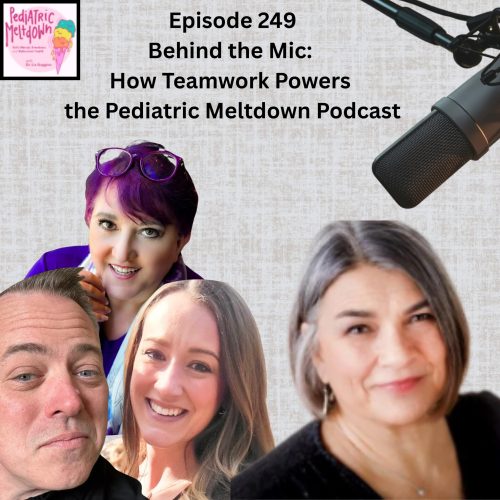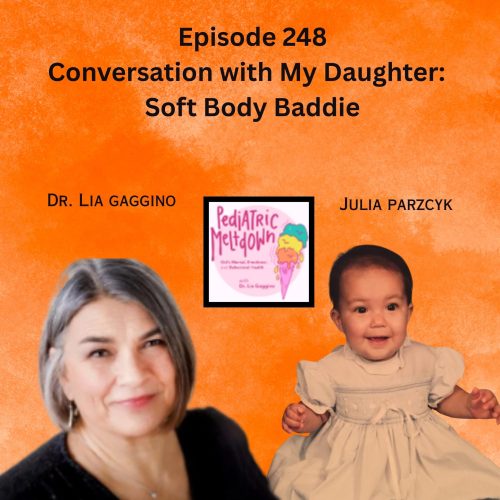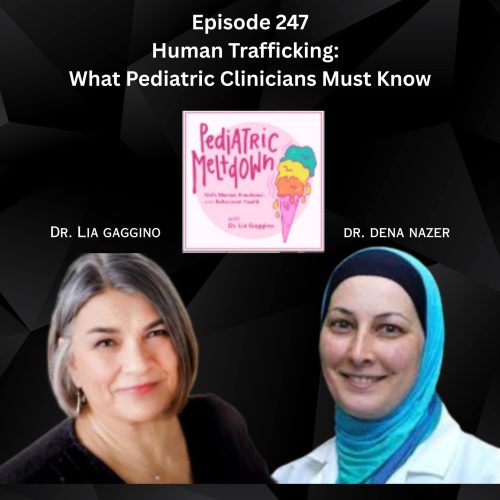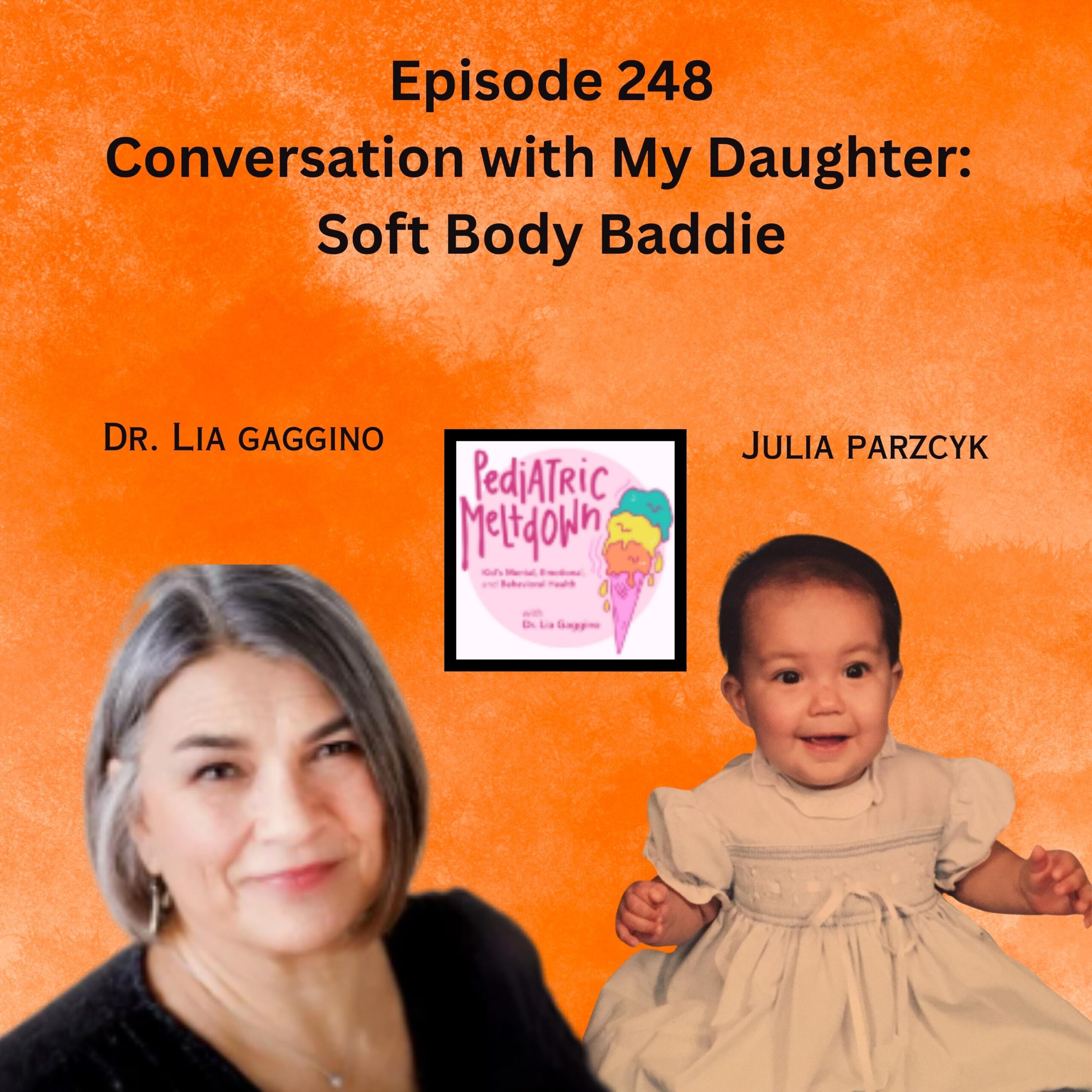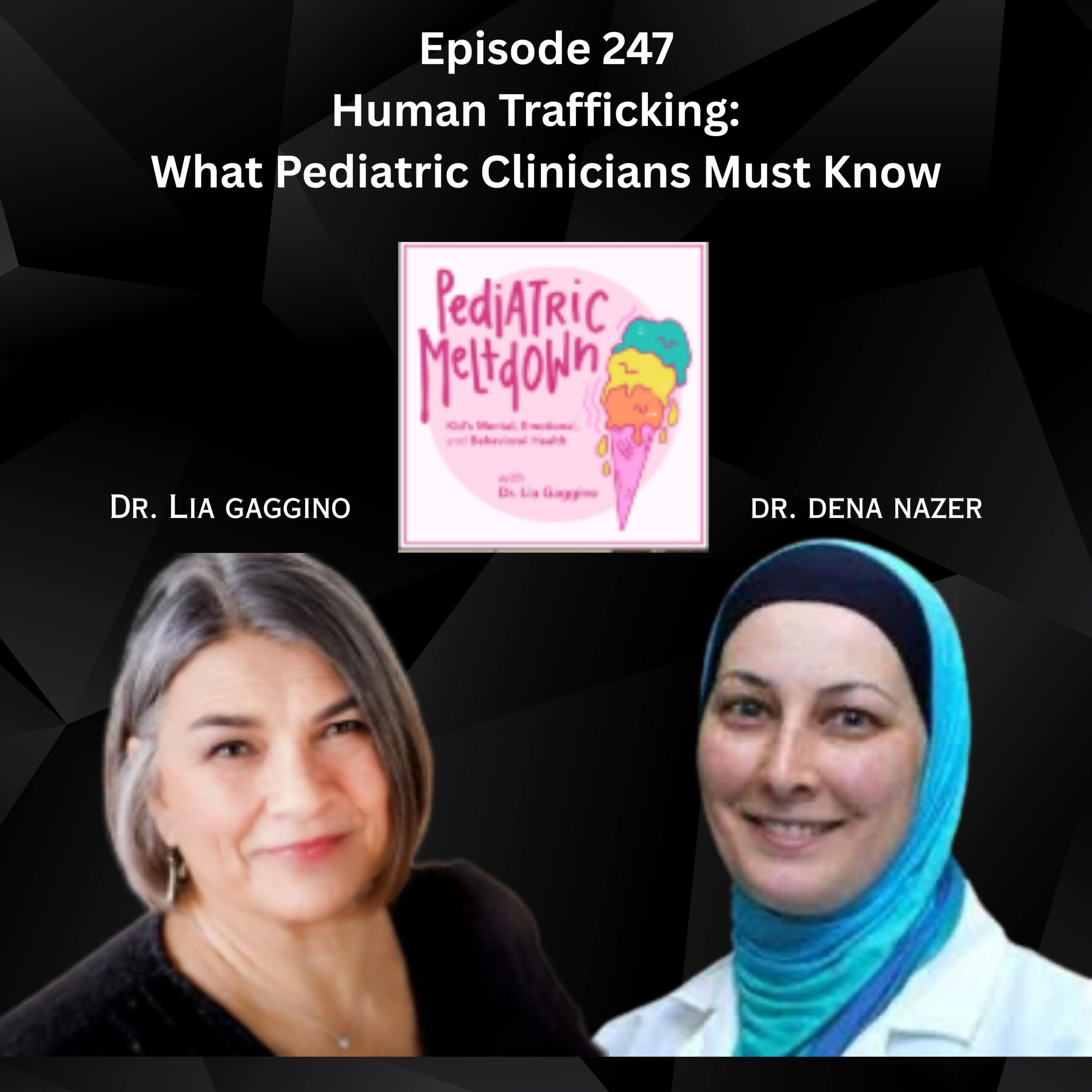We have a special episode for today because of two important guests. Dr. Sheila Marcus is the Section Chief of the Child and Adolescent Psychiatry of Michigan Medicine at the University of Michigan while Dr. Sarah Mohiuddin is the Director of the University’s Multidisciplinary Autism Program. They join us to discuss autism spectrum disorders and how we can detect them in as early as 4-12 months. We will learn that the symptoms of these disorders are often subtle and that early detection is critical
Let’s listen to Dr. Marcus and Dr. Mohiuddin to learn more about autism spectrum disorders.
[00:01 – 02:51] Opening Segment
- Welcoming today’s guests, Dr. Sheila Marcus and Dr. Sarah Mohiuddin,
- We introduce our topic for this episode
[02:52 – 13:24] Observe the Baby
- Dr. Marcus tells us what to look out for in a 4- to 12-month old baby
- A baby should learn how to love the parents by this time
- Listen to Dr. Mohiuddin’s advice for pediatricians
- Encourage the patient’s parents to come back
- Use appropriate language that only subtly expresses your concern
- Observe the baby with the parent without your presence
[13:25 – 23:31] Consider Virtual Evaluations
- They talk about the pros and cons of virtual evaluations
- Hear the parents’ voice, see the baby
- The importance of early interventions for babies exhibiting signs of autism
- Dr. Marcus explains
[23:32 – 34:02] Explain the Spectrum
- They explain why autism disorders are located in a spectrum
- Not a matter of “you have it” or “you don’t have it”
- Dr. Marcus talks about the common tests to detect autism spectrum disorders early
- What are the usual treatments for autism spectrum disorders?
[34:03 – 47:43] Don’t Always Fill in the Gaps
- Adults can let the conversation with a kid remain uncomfortable
- Dr. Mohiuddin explains
- Why should adults “not fill in all the gaps?”
- We talk about how kids with autism build social relationships
- Dr. Mohiuddin reminder on giving medications
[47:44 – 57:53] Think About the Kid’s Future
- We share some useful resources to educate you more about autism
- Links below
- The challenging part of transitioning to adolescence and adulthood
- They talk about the importance of thinking about the kid’s future
- Independent living skills, work, and preferences, among others
[57:54 – 01:06:15] Closing Segment
- Parting words from Dr. Marcus and Dr. Mohiuddin
- Final Takeaways
- Always listen to parent concerns and take them seriously
- Early identification and evaluation make all the difference
- Delivering the diagnosis can be hard and painful for patients
- Early symptoms are sometimes too subtle
- Applied Behavior Analysis and Early Start Denver Model
- Older language with strong language skills can be missed easily
- Don’t always fill in the gaps
- Think early about the kid’s trajectory in the future
- Medications should only be considered in extreme cases
- As adults, kids may do well regardless of their skills
Tweetable Quotes:
“…if a parent who’s an astute observer and somebody whose opinions you’ve always trusted sensed [the possibility of autism], number one, believe them.” – Dr. Sheila Marcus
“In doing an evaluation of an older kid who has not had a diagnosis of autism yet but there has been suspicion, part of the trick of doing the evaluation is…you as an adult have to not fill in all the gaps.” – Dr. Sarah Mohiuddin
Resources Mentioned:
Email smmarcus@med.umich.edu to connect with Dr. Marcus and smohiudd@med.umich.edu to reach out to Dr. Mohiuddin. Also, visit https://medicine.umich.edu/ to learn more about their space.
If you’d like to connect with me, you can find me at LinkedIn, Facebook, and Twitter or email me at gagginol@yahoo.com. To learn more about me visit https://www.medicalbhs.com/
LOVE WHAT YOU HEARD? Leave us a 5-star review so we can continue to provide you with great content. Share this episode and help people know more about children’s health and well-being.



